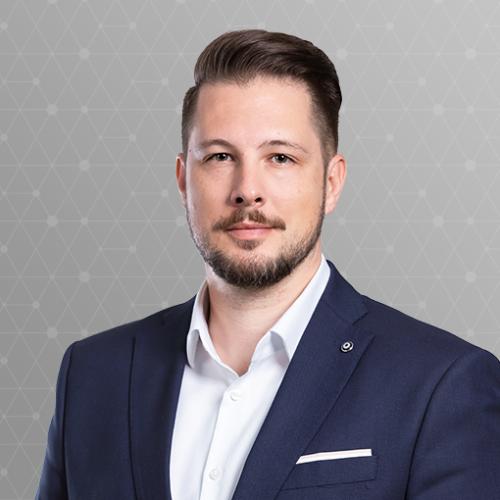Creating surpluses is the goal of every successful company; in order to reach the objectives pursued, these companies carefully plan their activities, monitor them, manage and optimise them and, in the end, exceed them. Any surpluses are a consequence of an alignment between the trademark and agencies. The key to the success of the trademark therefore depends on the excellence of all aspects of the marketing strategy, prepared by the agency for a contracting entity. In practice, this is usually simple to achieve by employing specialisation and participation among different agencies.

Success stories don’t just happen. They are a result of intertwined and consolidated marketing activities, reflected as a whole in the successful result. The most successful companies concentrate on tasks they know how to do best, while making sure that other marketing aspects are handled by other experts, specialised in a certain field. This makes the marketing strategy both good and accomplished from every point of view, regardless of whether we’re talking about long-term or short-term results.
Intelligent use of smart technology
By increasing the technological capacities, the possibilities of interactions available to trademarks for communicating with their consumers also increase. This is why, when planning a communication strategy, you must also think about new communication channels, representing a new, more interesting experience for consumers. The use of augmented reality (AR) and virtual reality (VR), as well as the use of location data, may represent a memorable experience for the consumer, placing the trademark one step ahead of its competition.
In order to implement innovative elements and succeed in presenting modern digital advertising campaigns, advanced technology is key. At iPROM, we have prepared an interactive iPROM Shake Ad concept for the Volkswagen brand, adapted to users of mobile devices and the particularities of each of the device. The tailored targeting and functionality of the concept have achieved a high degree of involvement in the target group. Technology also played the leading role in the advertising campaign for Thermana Laško, where we used the iPROM 360 solution to create a particular user experience offering a visual presentation of the location and of the accommodation grounds; in the tourism sector, these two factors play the leading role in performing online purchases. In addition to technology, the main role in both cases was also played by the estimate of the points of contact that consumers considered to be most important, and of the points where communication should either be reinforced or reduced.
In the technological era, users modified and adapted their behaviour to this new lifestyle. They also changed the manner in which they consume media and walk along the purchase path accordingly.

What are data trying to communicate to us?
Globally, data are an invaluable source of consumer-related information. Nowadays, it is impossible to prepare a good strategy and create surpluses without having access to good data, as they provide the basis for the decision-making process and are also used as grounds for each individual step. In iPROM, we have been dealing with data and with the technology used to capture and process them for nearly two decades. In cooperation with the Valicon Research Institution, we have made yet another step forward. We have prepared a project for predictive modelling based on behavioural patterns of users of digital media and data. The predictive model was then integrated into the iPROM DMP platform, pragmatically used to target the target group of the advertising campaign of the group Atlantic Grupa for the Argeta trademark.
Data cannot tell us much without a suitable interpretation. Numbers and variables need to be transformed into pieces of information, understood by marketing experts, which provides them with a real picture of their consumers, while the analysts then add the applicative value and isolate correct data from the data set.

Feedback loop—what do the consumers think?
Since the consumer is placed in the centre of the action, the communication is adapted to them. Without consumers, trademarks would not exist either. With the process of digitalisation, consumers became more influential than ever; since they can publicly publish their opinion of a product or service, they can therefore share their own experience with others. Positive notes may influence the other consumers and bring success to the trademark, while negative comments may cause the opposite to happen. Since consumers are looking for a good user experience, a personalised approach, and two-way communication, trademarks are constantly trying to ameliorate their products or services, build a relationship and a dialogue with consumers, and create unforgettable consumer experiences.
Orchestrating the implementation
The final result of a tuned-in orchestra is a melody that is pleasing to the ear. Just as an orchestra is combining the skills and expertise of different instruments, the implementation of marketing projects is also based on a wide range of specialised knowledge. A harmonised combination and connection within said range provide the trademark with the best possible solution and surpluses.
In my opinion, the path towards excellence may only be achieved in one way–by having each of the experts only do what they are qualified to do. In order to achieve synergy and the best results, companies or agencies must cooperate and only perform the tasks they do best. Long-term added value is created through specialisation and synergies obtained through real, valuable partnerships.
